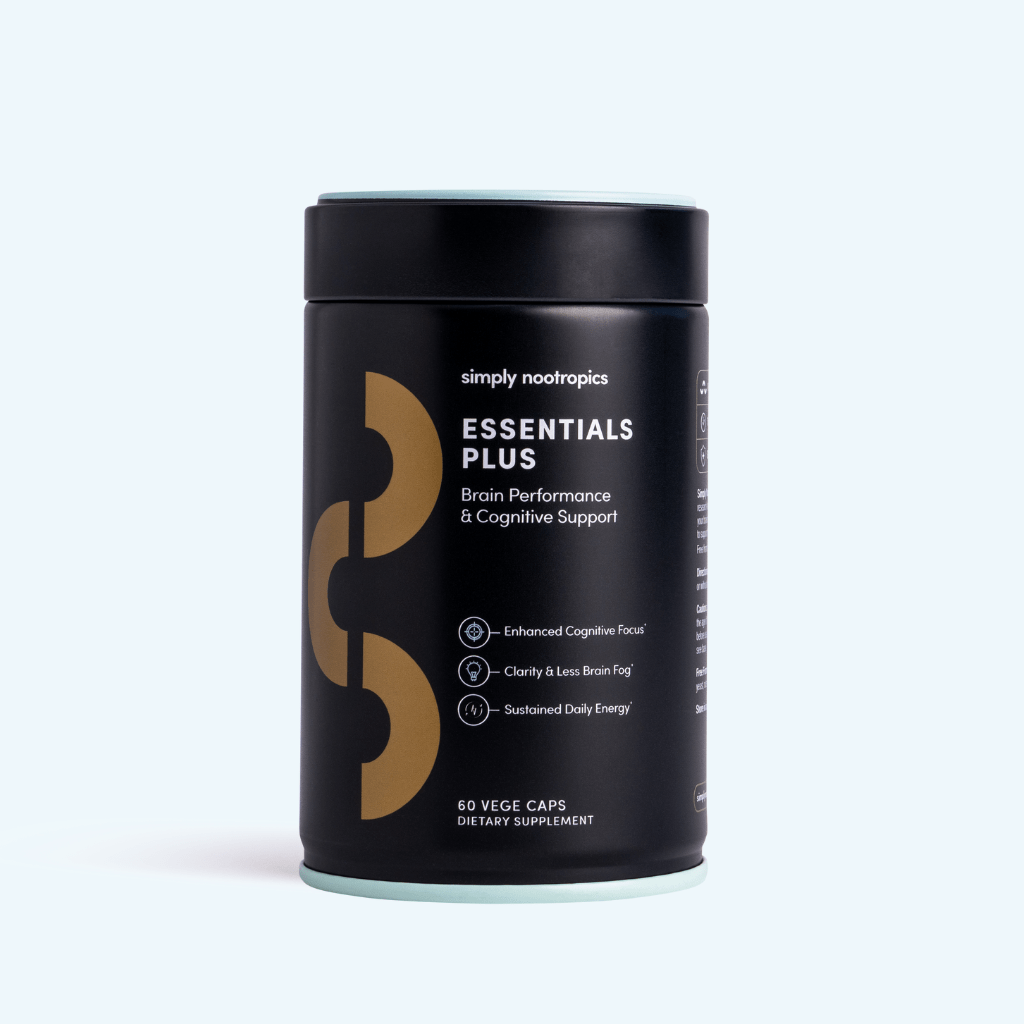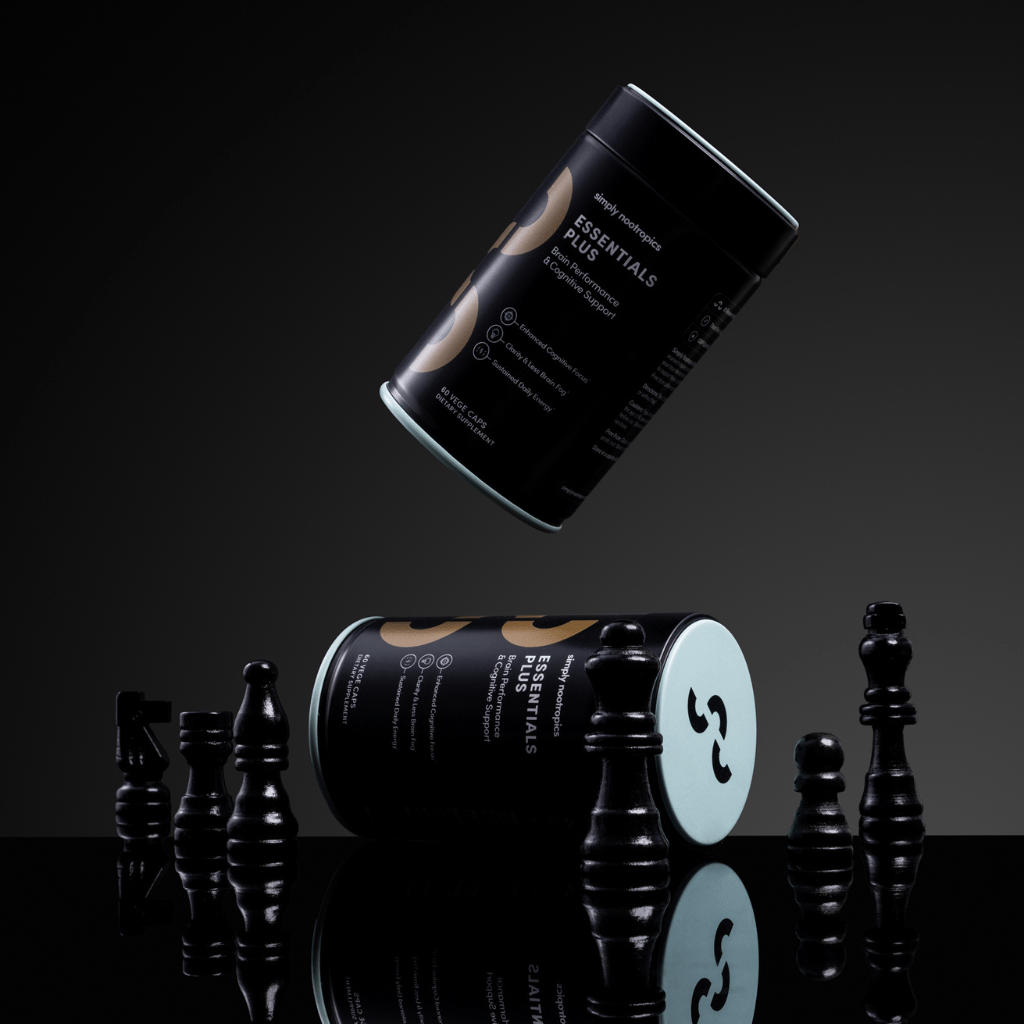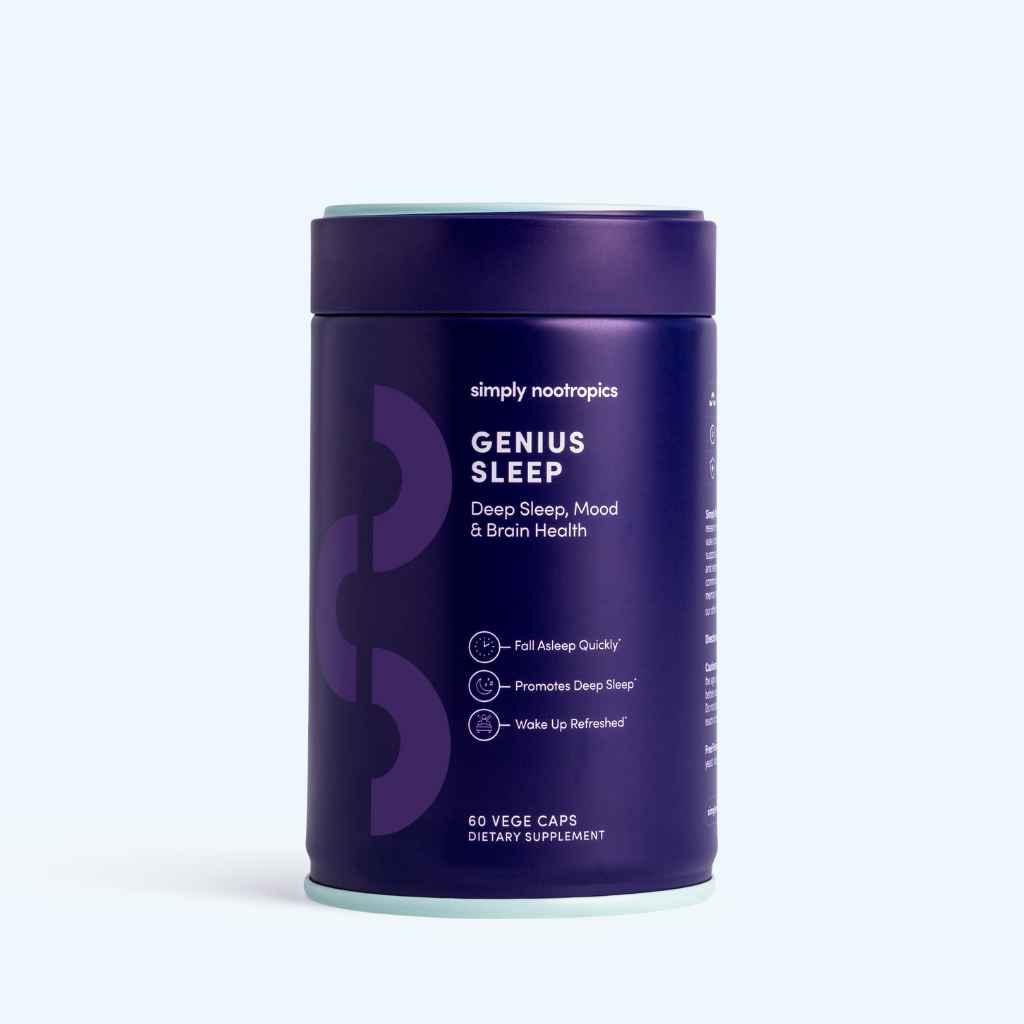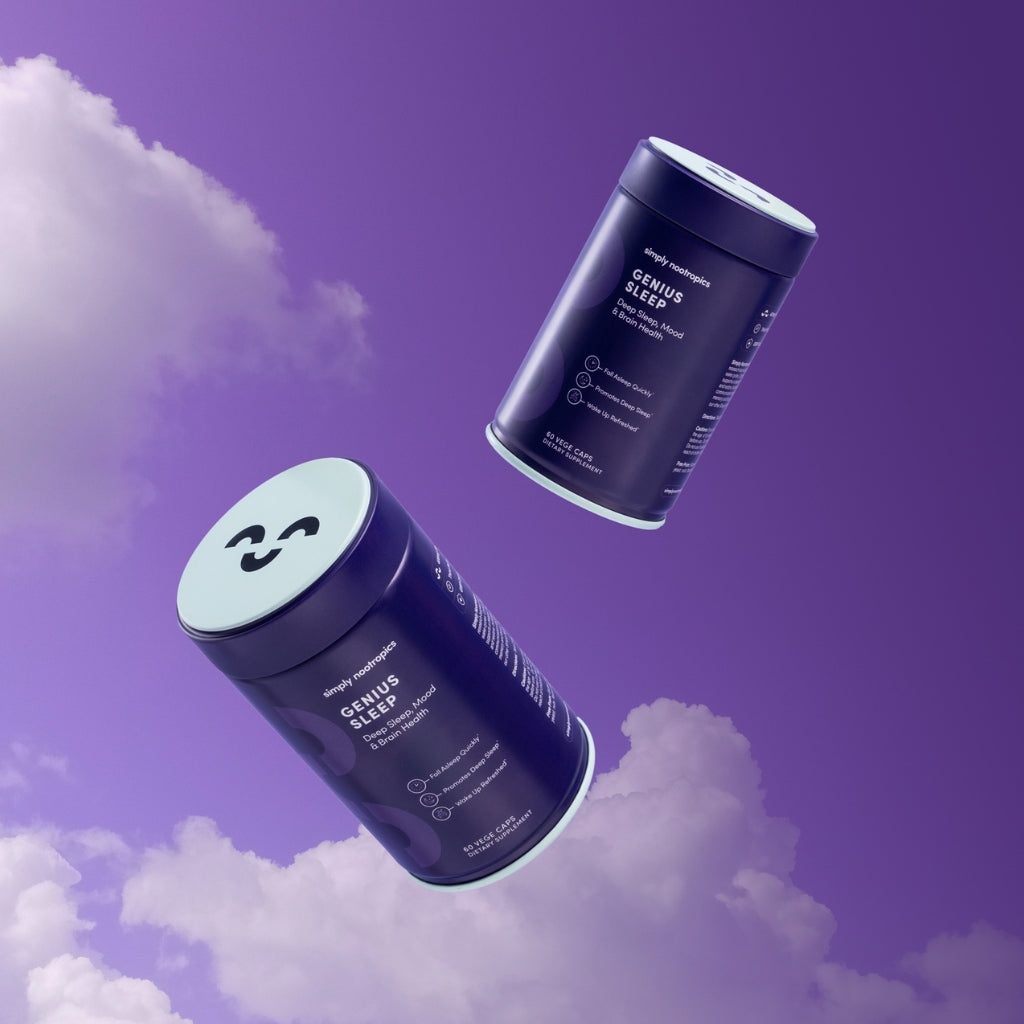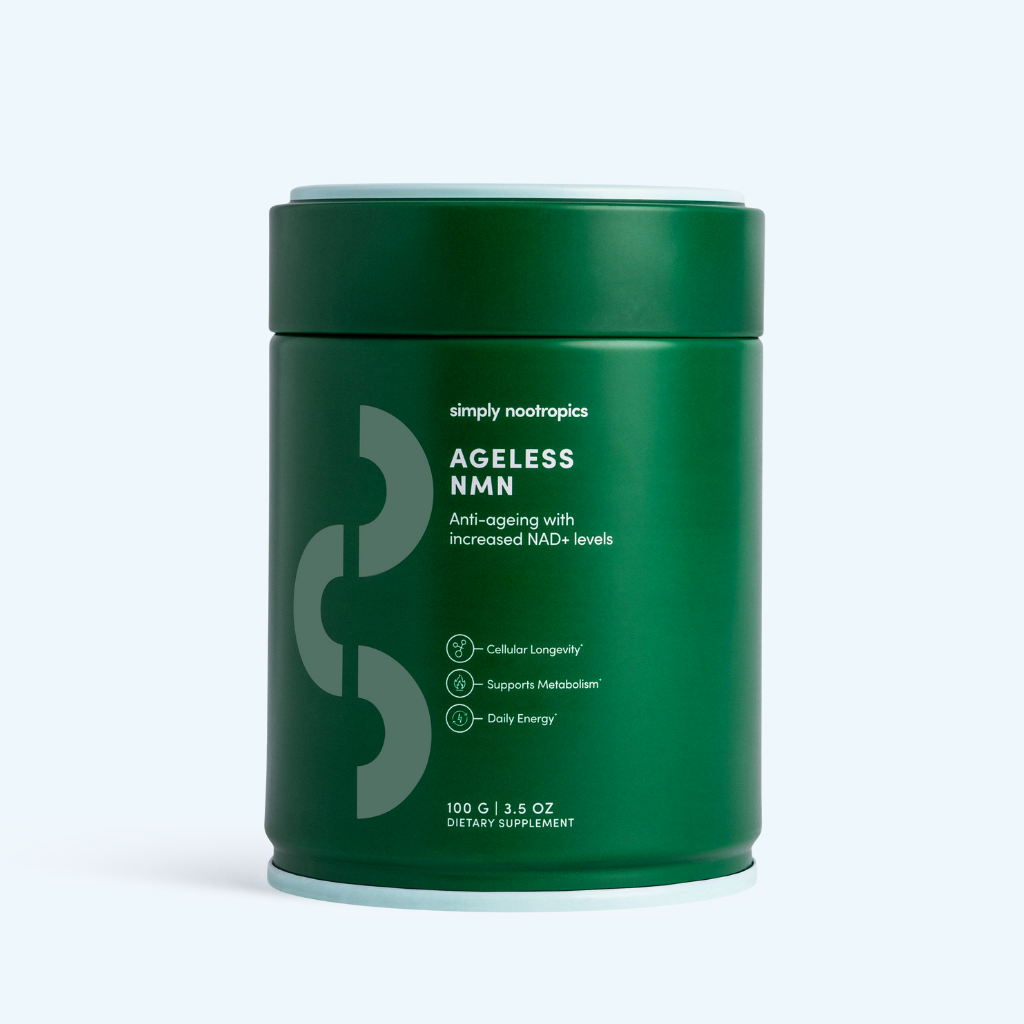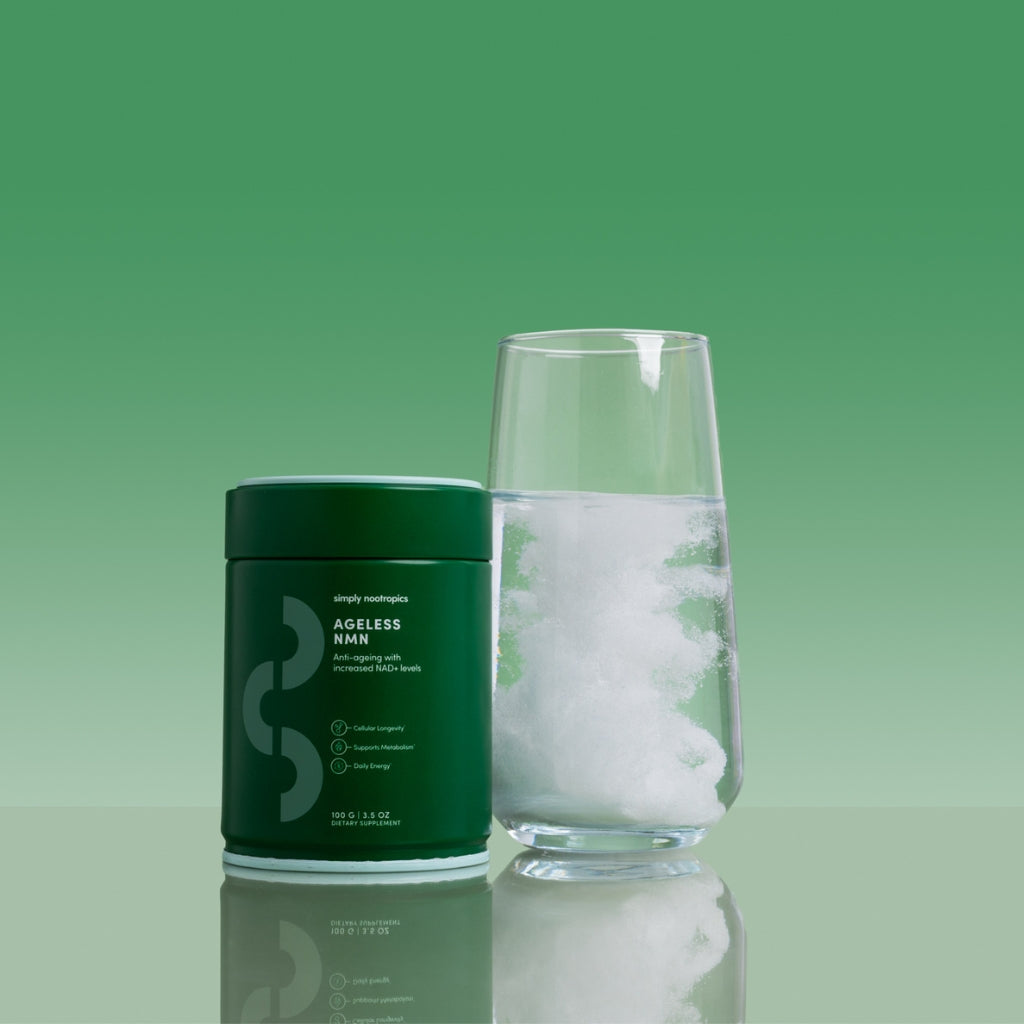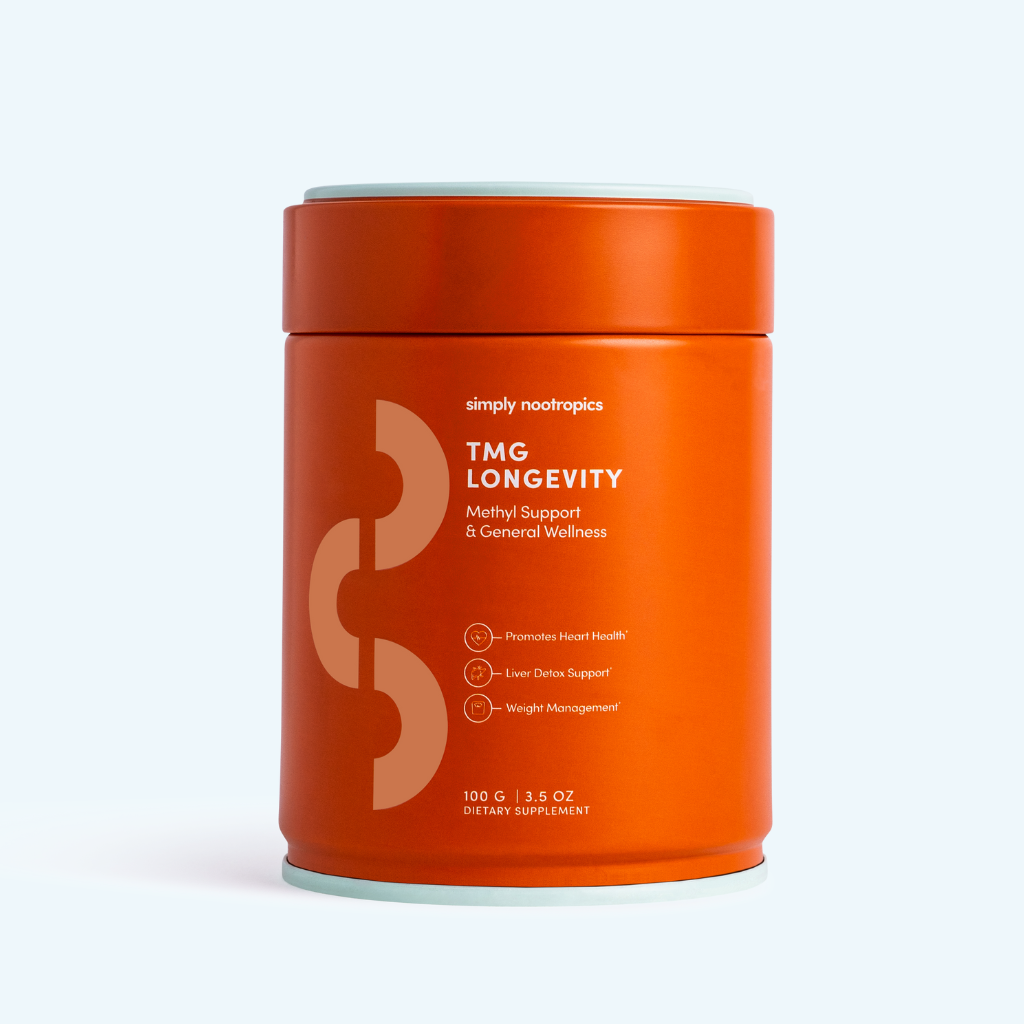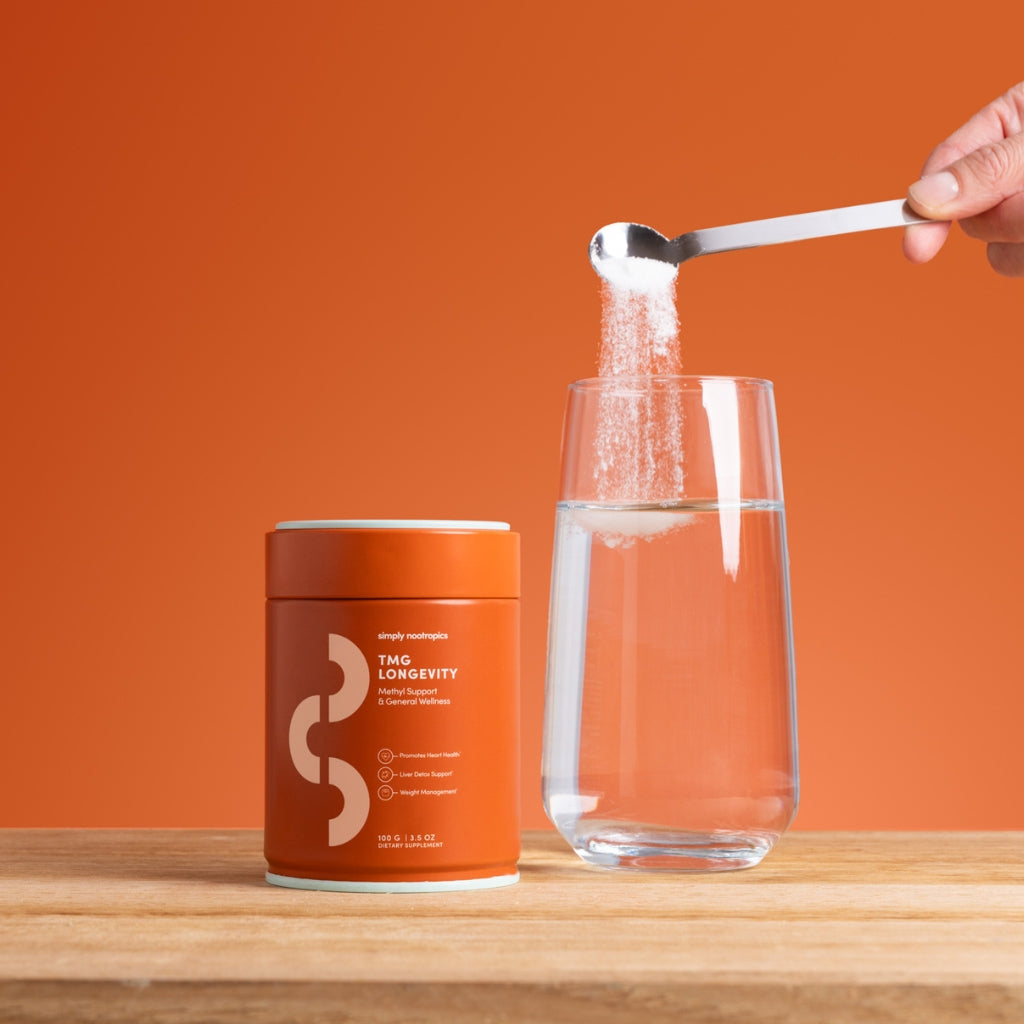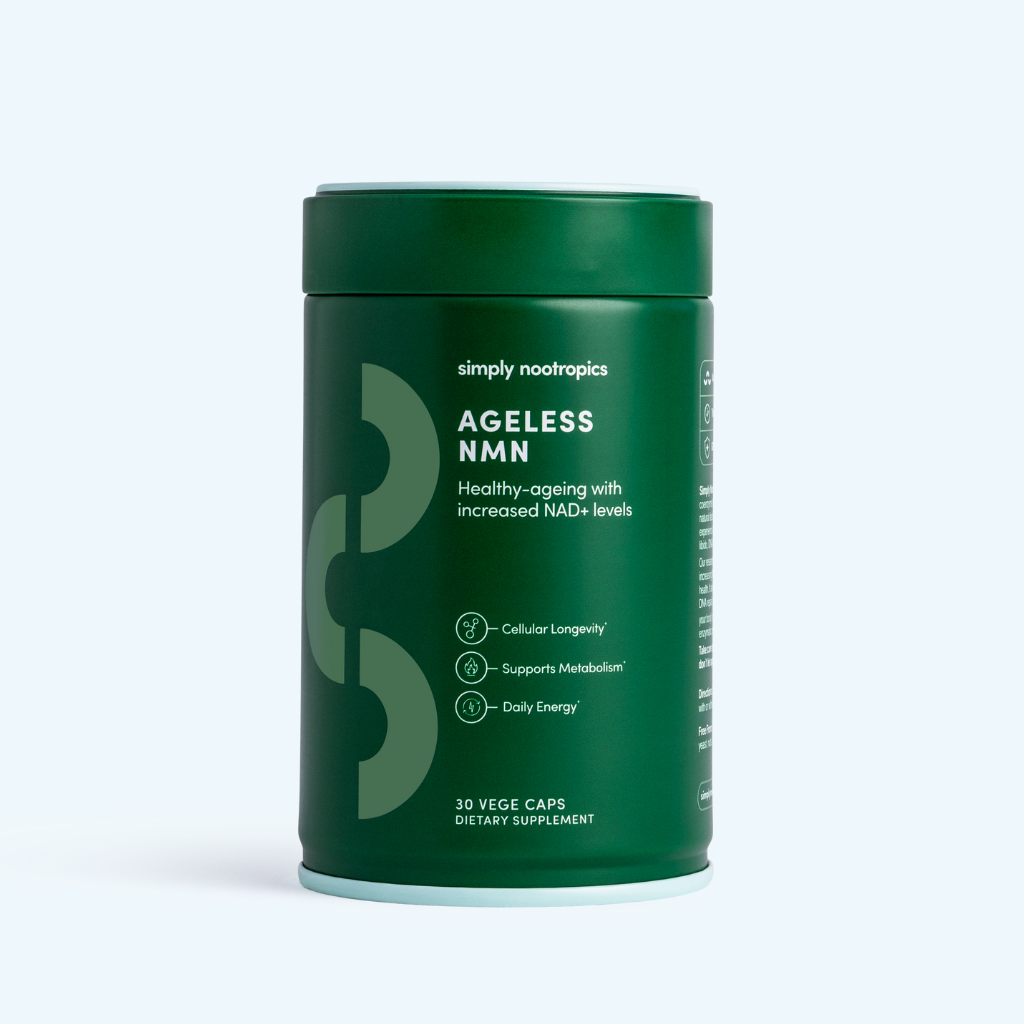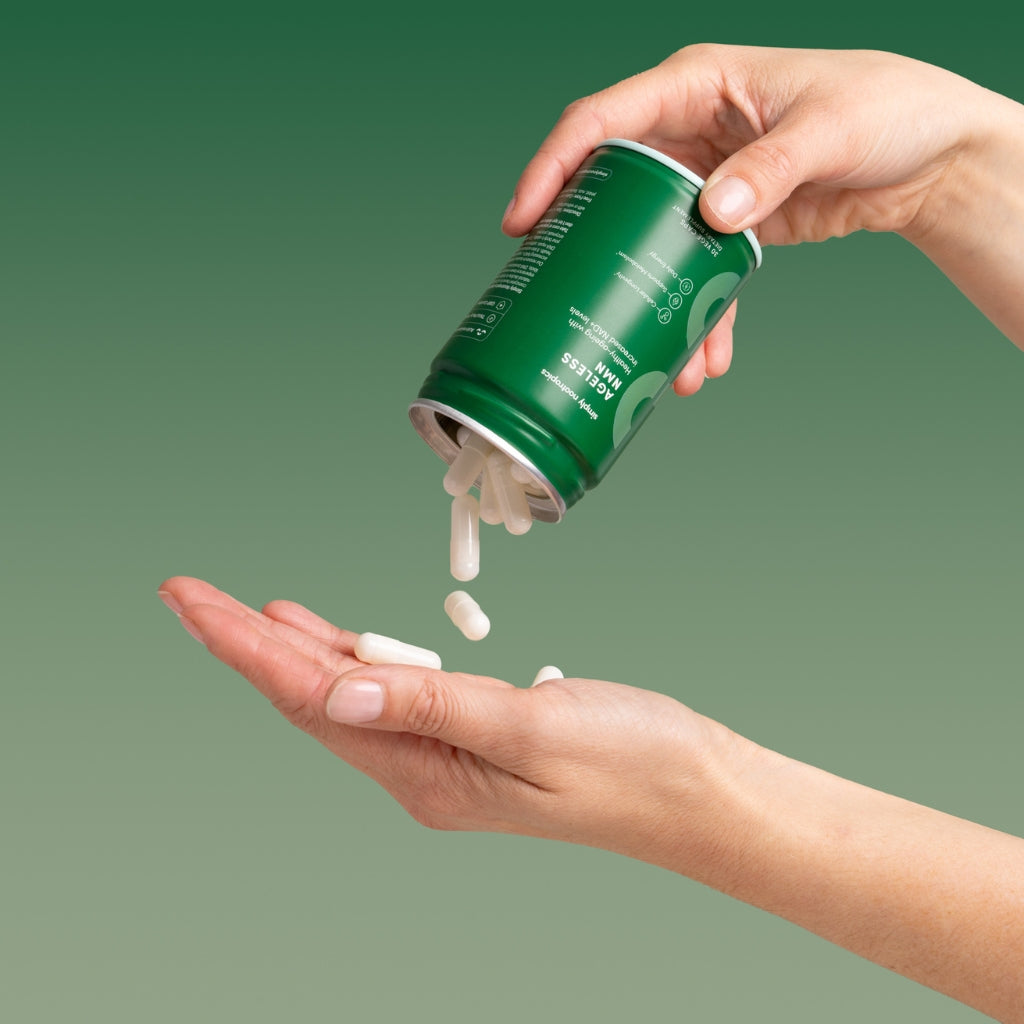When you need to think fast, stay alert, and get stuff done, nothing beats the beneficial effects of nootropics. If you feel fatigued, stressed, or have brain fog, you need the right nutrients to feed your brain - not a quick fix.
In today's busy world, too many people still blindly reach for the coffee pot when they need a pick-me-up. But did you know it could be doing more harm than good?
The coffee cup is perhaps the first thing that comes to mind when someone thinks about their morning routine. But think hard before reaching for a refill – because that large Starbucks drink could just be adding unnecessary stress to an already stressful life!
Nervous before going into work? Dreading those meetings with clients? Fretful you can't face everything and don't know how your evening will go once all these tasks have been completed?
That coffee cup in your hand could be the culprit.
Here are eight reasons to say "no" to a cuppa joe.
1) A caffeine surge doesn't equal a smart brain
Coffee is a psychoactive drug that can make you feel more alert and focused, thanks to caffeine. But caffeine doesn't give your brain the boost it needs to function optimally. Caffeine works by tricking various neurotransmitters in the brain - specifically, adenosine receptors - to make you think you have more energy. It doesn't supply energy or feed your brain, like nootropics do. Caffeine just blocks the brain's natural chemicals that tell your brain when it needs to rest and recuperate.
Caffeine is deceptive, because you're not as alert as you think you are. It creates a vicious cycle of withdrawal and stimulation that makes people increasingly dependent on it to maintain wakefulness (more on this later).
2) Caffeine releases stress hormones
Caffeine triggers a cascade of stress hormones that practically steal energy from your brain. This can contribute to anxiety and panic attacks. Caffeine is the exact opposite of an adaptogen (nutrients that help the body deal with physical, chemical, or biological stress). As caffeine expert and Duke University researcher James Lane advises, "think of caffeine as a drug that creates 'stress,' and has similar effects on the body".
You might be surprised to learn that "caffeine-induced anxiety disorder" is listed in the Diagnostic and Statistical Manual for Mental Disorders, or DSM. The average Starbucks 12-ounce coffee ("tall") has approximately 260 milligrams of caffeine, while a 16-ounce cup contains around 330 milligrams ("grande"). Consuming caffeine in amounts greater than 200 mg is linked to an increased risk of anxiety, hostility, and panic attacks.
Think you can handle caffeine? Think again, big man. In a double-blind experiment, 25 healthy males given a single 300 mg dose of caffeine were found to experience twice the psychological stress (measured by their salivary α-amylase production) compared with a placebo group.
3) Coffee causes caffeine jitters
Coffee drinkers are familiar with caffeine's side-effects like nervousness, irritability, and a racing heart. Caffeine hikes up your adrenaline levels and releases cortisol – the hormone responsible for the fight-or-flight response – resulting in high blood pressure, jitters, and 'the sweats'.
You don't look confident when your hands shake and your pits stink.
And yet, many of us still believe we need coffee to get through a busy workday, the very time when we most need to be cool as a cucumber.
4) Fatigue (or "the 3 pm Downhill slide")
Coffee can also cause adrenal fatigue. If you drink coffee, you're more likely to be fatigued and experience burn-out in the workday, because caffeine taxes your body with energy demands that it cannot meet.
A review of 41 studies revealed that while caffeine initially increased alertness, participants were more tired than average the following day.
Since caffeine is addictive, you might find yourself reaching for caffeine when your adrenal glands are exhausted. Ask yourself whether you really want it, or if it's just chronic use feeding the need for caffeine.
4) Caffeine is addiction-forming
Caffeine addiction is real. It alters brain chemistry, making coffee drinkers dependent on caffeine to function. But caffeine has a roller-coaster effect that burns out the body's caffeine tolerance levels, forcing you to increase caffeine intake to reach the same highs you used to get.
Caffeine is a central nervous system stimulant - like cocaine and amphetamines. It triggers several of the same brain chemicals (noradrenaline, dopamine, serotonin, acetylcholine, glutamate and GABA). Caffeine does not, of course, produce the same level of addiction as these drugs. But if you consume a lot of coffee on a daily basis, there's a high probability you'll become dependent on its effects.
And like any addiction, caffeine can lead to psychological and physical symptoms, such as cravings, tiredness, and withdrawal. Nobody wants that headache.
5) Chronic insomnia by the cup
Caffeine can make it harder to fall asleep. If you underestimate the amount of caffeine you drink, you may not be aware of just how much coffee is disturbing your sleep. The caffeine in coffee takes hours to clear the body (it has a half-life of roughly five hours in the bloodstream).
Most caffeine users report difficulty sleeping if coffee is consumed after 3 pm (ironically, the same time as the "caffeine crash"). As the caffeine drops in your body, your adrenal glands signal you to get another caffeine hit ASAP. This sends coffee drinkers in a vicious cycle.
Speaking of cycles: caffeine takes a toll on Circadian rhythms – your natural waking and sleep patterns. Caffeine's 'energy effect' mainly works by blocking your brain's adenosine receptors, and this inhibits your body's natural sleepiness hormone (melatonin). Your caffeine intake will play a vital role in your quality of sleep and, by extension, the natural regulation of your body's neurochemicals and hormones.
Because caffeine disrupts sleep, it alters circadian rhythms, producing a negative feedback loop. You feel more tired in the morning because you haven't slept, so you crawl back on the endless caffeine hamster wheel.
6) Muscle breakdown – a bad brew
Speaking of treadmills, did you know caffeine can lead to the loss of muscle mass? This one is admittedly rare, but extreme caffeine consumption is one of the causes of rhabdomyolysis. Rhabdomyolysis is a life-threatening condition in which muscle fibres break down and leak into the bloodstream, leading to kidney failure and other problems.
The jury is out whether caffeine is good or bad for working out, but anecdotally, many bodybuilders avoid coffee (as part of a clean diet). This Personal Trainer makes a good case for why.
While drinking caffeine before exercise may initially assist in muscle contraction, its residual side effects are not good. Caffeine interferes with protein synthesis, inhibits your body's ability to deal with lactic acid, and impairs the "rest-and-digest" mode essential for muscle building.
So caffeine is a quick-and-nasty performance enhancer with only short term benefits. It shouldn't form part of a workout nutrition strategy.
7) Caffeine contributes to nutrient depletion
Caffeine sucks up nutrients. This can lead to severe deficiencies and cause fatigue, headaches, and brain fog. Caffeine depletes essential nutrients such as vitamins B and C and inhibits the absorption of essential minerals, including calcium, iron, and magnesium. Caffeine undermines the ability of micronutrients to get into neurons where they work best. Simply put, caffeine - unlike nootropics - is not brain food.
The absorption of iron from an iron-rich burger can be reduced by 39% when consumed with coffee. The loss is increased to a whopping 60-90% when the source of iron is bread. So your morning cup of coffee might be secretly sabotaging the benefits of your healthy breakfast!
The Massachusetts Institute of Technology found that high coffee consumption depletes magnesium, which is crucial for good health. Magnesium is essential to 300 enzymatic reactions, affecting mental activity, bone strength, muscle growth, energy production, and more.
Drinking coffee also reduces the circulating concentrations of potassium, sodium, and other water-soluble nutrients. Due to caffeine's diuretic effect (meaning that it causes increased urination), nutrients are eliminated from the body before having a chance to be absorbed.
Know what also might be getting flushed down the toilet? Your bones. That's right. Increased urination causes calcium loss. Researchers estimate that for every 150 milligrams of caffeine, 5 milligrams of calcium is lost in urine. This may seem a minor amount, but it can contribute to significant bone thinning and eventually lead to osteoporosis over time.
8) Digestive Issues - the bottom line
We all know that uncomfortable feeling when too much coffee makes your bowels rumble and fill up with gas (or worse!). That's not a good start to your morning meeting, and not a good look when you have to rush to the bathroom suddenly. And everybody knows why you left!!!
The stimulation of peristalsis – the contractions that move food through your digestive tract – is one of coffee's laxative effects. Caffeine is also linked to gastrin production, a hormone released by the stomach that promotes colon activity, and leads to loose stools. That guy in the stall next to you torturing the porcelain? You can bet he had his coffee.
If you want to avoid the caffeine squirts, you need something that's gentle on the digestive system while giving you the boost you need.
Is it better to drink coffee or take nootropics?
Coffee might seem the perfect pick-me-up for some people, but you could end up doing more harm than good. Caffeine does not "give" you energy – and it can deplete your body and mind of essential resources!
Nootropics are a great alternative that has been shown to positively impact mood and cognitive performance. The natural ingredients in nootropics - like Bacopa Monnieri, Ginkgo Biloba, Ashwagandha and Rhodiola - have been shown time and time again to boost alertness, positively impact mood, and improve cognitive performance. And unlike some lesser brands, Simply Nootropic's Elevate is proudly caffeine-free.
By adding nootropics to your daily regime, you can avoid caffeine withdrawal, tolerance and the dreaded ‘caffeine crash’, while also:
- increasing your chances of maintaining consistent energy levels,
- combating sleep debt (remember caffeine has a half-life of five hours), and
- supporting neurotransmitters, which boost mood and help you handle stress.
You can get started with our 21-day brain hacking challenge here.

